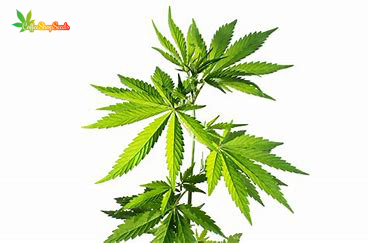What do you need to know about hemp? You might be confused about the difference between hemp and marijuana. When talking about hemp, chances are you tend to associate it with marijuana. That said, the mere mention of either plant may conjure up images of people being ‘high’ conjures up. However, you should know that there’s a difference between these two plants, though both are under one classification. This is important because while marijuana still has a bad reputation among the public, the use of hemp has much nutritional value.
Difference between Hemp and Marijuana
The cannabis sativa family is said to have twins: hemp and marijuana. Yes, both are classified under the cannabis sativa family. They are typically referred to as ‘species’ or ‘strains’ of the cannabis plant. However, they aren’t technically considered as either. In fact, they are actually not considered plants at all. Hemp and marijuana are simply broad classifications of cannabis that were adopted in our culture.
To be specific, marijuana is a term used to classify varieties of cannabis that contain more than 0.3 percent of tetrahydrocannabinol or THC content. THC is the psychoactive property that can induce a euphoric or psychotropic effect on the user. Meanwhile, hemp contains 0.3 percent or less THC content. For this reason, hemp has generally been in demand for industrial use. It can be used to make certain things, such as beauty products, building materials, industrial textiles, paper, and even food products.
Speaking of food products, we will further discuss the nutritional benefits that you can get from hemp in the next section. Let’s explore some of hemp’s nutritional goodness:
Protein
In terms of nutritional benefits, one great thing about shelled hempseed is that it is a great source of protein. In fact, it is one of the few seeds that consist of all of the essential amino acids. For instance, three tablespoons of hemp contain ten grams of protein. So if you are looking for an excellent source of protein, you can take advantage of hempseed products.
Essential Fatty Acids
Another nutritional value of hemp are the essential fatty acids. These include an abundant amount of omega-three, which is pretty scarce. In fact, hemp has an omega-three to six ratio of about 1:3. Experts say this is the ideal ratio of fats that need to be consumed or absorbed for the human diet. Aside from this, hemp also contains alpha-linolenic acid (ALA) and gamma-linolenic acid (GLA). These are two anti-inflammatory omega 6’s, which means hemp can be used to manage inflammation.
Vitamins and Antioxidants
Furthermore, hemp has a high nutritional value, which includes vitamins and antioxidants. In fact, it has reasonable amounts of Vitamin E, which is good for the skin. It also has Vitamin B (choline and inositol) for brain-building, liver-supporting lecithin. Furthermore, hemp is unique as it is one of the few seeds that have the emerald-coloured antioxidant pigment called chlorophyll. Therefore, it can be a good source of antioxidants.
High Digestion
Finally, hemp is essential for proper digestion. The hemp seeds contain lower amounts of phytic acid. Phytic acid is a naturally occurring compound in many plants, particularly in nuts and seeds. This compound can inhibit mineral absorption. Also, hemp seeds contain high amounts of enzymes. These make it more digestible, and its nutrition is better absorbed. The good thing is, hemp is easy to add to your diet. It can be used in salads, smoothies, and sprinkled over soups. So for high digestion and mineral absorption, you can surely count on the use of hemp.
If you’re looking to buy hemp seeds, Coffee Shop Seeds is your best option. Get in touch with us today to see how we can help.


